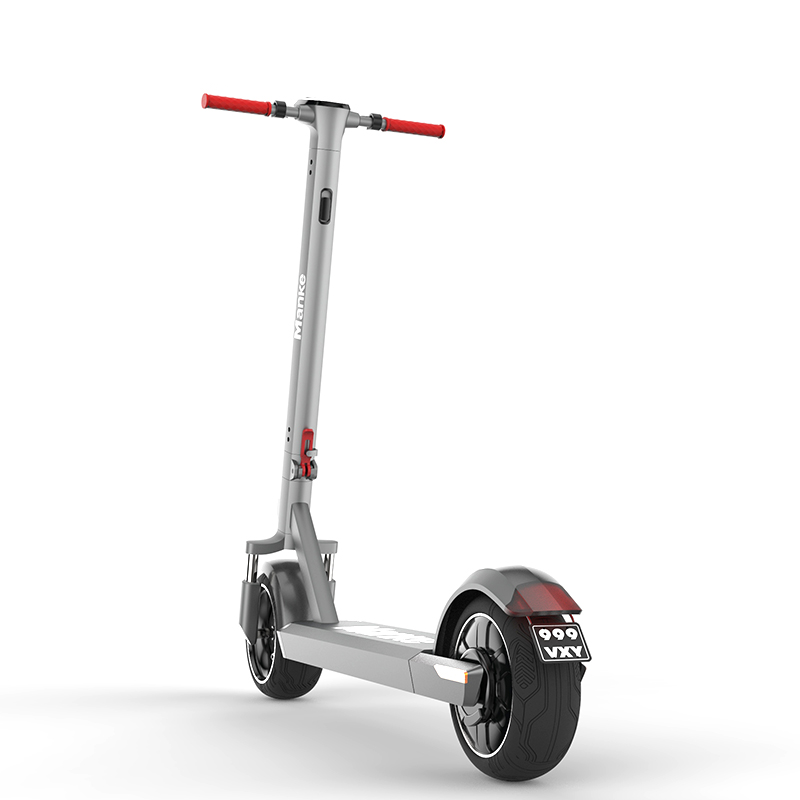Are Electric Scooters Legal in The UK? E-Scooter Law in The UK.
Chelsea Davis
Dec 17 2020 · 4 min read
You might be seeing scooters everywhere across the UK, but is it legal to ride them?
Living in the UK, we're sure you've seen your fair share of scooter riders across the nation. In country parks, along city streets, and sometimes on the road, electric scooters seem to be everywhere. You'd be forgiven for thinking that it's legal to ride in those places, but as we're about to find out, that might not be the case.
Across the world, a number of e-scooter rental platforms have sprung up. Lime and Bird have monopolised the US market, while Voi and Tier have recently been taking the European micromobility market by storm. And why not? City streets are the perfect place for the scooter rental model. Avoiding the congestion of driving through busy cities is a huge attraction for many and with collapsible lightweight scooters like the 9 Pro Edition, scooters can easily become part of the commute.
Unfortunately, although the same benefits exist in UK cities, laws surrounding the use of electric scooters mean that riding private e-scooters on public land isn't strictly legal. Currently, e-scooters are only available to ride within a small number of designated trial areas, and even then, only when using rentals from authorised operators. This is a measured first step from the government that allows them to understand the impact and requirements before allowing them nation-wide.
Most European countries have e-scooter regulation, but the UK is lagging behind.
Current Guidance
The government's guidance for users gives us some interesting insights though. We have to remember that these are current guidelines, but there's a fair chance that we'll see similar rules once the trials are over. Here's what we've seen on the gov.uk site:
Speed Limits
The maximum speed for an e-scooter is 15.5mph.
This is inline with what we've seen from the e-scooter industry in general. Most entry-level scooters will provide speeds up to 15mph (25km/h), limited by the scooter's speed controller. We think this is likely to remain the same for private e-scooters too.
Driving Licenses
You must have the category Q entitlement on your driving licence to use an e-scooter.
A provisional driving license will cover you here, which makes sense. Riding an e-scooter is similar to riding a traditionally powered scooter. Unlike riding a bicycle, you're not providing the power, which means you need to be aware and in-control of your scooter to stay safe. Having road awareness is a basic requirement when sharing the same space with other vehicles.
Insurance
E-scooters must have motor insurance, but you do not need to arrange this as this will be provided by your e-scooter rental operator.
Clearly, e-scooters will require insurance once trials are over. For now, under the trial system with rental operators, e-scooter riders are covered. Some other countries in the EU, like Germany, require e-scooter insurance. In those countries, you can buy an insurance policy for around 30-40 Euros a year, so we expect UK insurance costs to be in a similar ballpark.
Areas of Use
You may use a trial e-scooter on the road (except motorways) and in cycle lanes. You must not use an e-scooter on the pavement.
As a powered vehicle, this is a no brainer. When the law allows you to ride your e-scooter at speeds up to 15.5mph, you shouldn't be dangerously sharing the same space with pedestrians. Being able to make use of cycle lanes though is a big win for scooter riders, especially as the UK continues to prioritise bicycle lanes across the country with a £250m investment planned.
Registration Plates
E-scooters do not need to be registered, display registration plates or pay vehicle excise duty.
Some countries in the EU, require e-scooters display registration plates, but apparently, the UK will deviate from these. No vehicle excise duty (VED) means no yearly cost associated with owning an e-scooter.
Some countries require scooter registration plates.
Mobile Phones
You must not use a mobile phone when using an e-scooter. You may use a screen to display navigation information, but this must be set up prior to setting off.
Mounting a smartphone to your e-scooter is a great of navigating complex city streets. We like mounts like this one, that will withstand any bumps along the way. If your scooter has a connected app like the 9 Pro Edition, then you can even setup a heads up display with quick scooter controls on the go.
What We Think
The government's stance is changing when it comes to e-scooters and we're excited to hear how they think the trials have gone. They've given us a lot of useful guidance, and although it still isn't legal to ride your own e-scooter on public property, we don't think it'll be long until that changes. When it does, we expect the rules to be similar to what we see today within the trial areas.
UK
law

